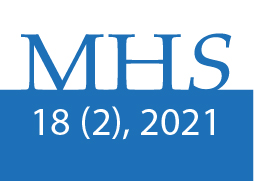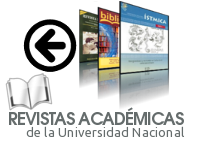Precompetitive Anxiety and Motivation in Costa Rica Elite Swimmers
DOI:
https://doi.org/10.15359/mhs.18-2.6Keywords:
precompetitive anxiety, motivation, swimming, sport psychologyAbstract
This study aims to describe the management of precompetitive anxiety in elite Costa Rican swimmers aged 14 to 22 years old, identifying the motivating elements (external and internal) and how the relationship with their coach and their peer group influences the processes of motivation and precompetitive anxiety. Semi-structured interviews were conducted by the end of 2018. The results suggest that among the main elements associated with greater feelings of anxiety are the lack of objectives achieved before the competition, having a poor performance during training, and being aware of the importance of the respective competition. The elite swimmers’ motivations have been classified as intrinsic (Olympic competition, time improvement, placement in rankings) and extrinsic (family, coach, team) ones. Finally, results suggest that a bad relationship with the coach and peer groups could result in a loss of interest in training and competing. In conclusion, when presenting precompetitive anxiety, performance can decrease, causing non-fulfillment of objectives, which leads athletes to demotivate, maintaining anxiety for their next competitions.
Keywords: Precompetitive anxiety, Motivation, Swimming, Sport Psychology.
References
Aranzana, M., Salguero, A., Molinero, O., Boleto, A.F. y Márquez, S. (2018). Relación de la carga interna de entrenamiento, optimismo y resiliencia con los niveles de estrés-recuperación en nadadores. Cuadernos de Psicología del Deporte, 18(1), 43-54. https://search.proquest.com/openview/e32919bbce1a35dbbaee5cf9904a5ec4/1?pq-origsite=gscholar&cbl=2035768
Baumeister, R. F. (1984). Choking under pressure: self-consciousness and paradoxical effects of incentives on skillful performance. Journal of Personality and Social Psychology, 46(3), 610-620. https://doi.org/10.1037//0022-3514.46.3.610
Botvinick, M., & Braver, T. (2015). Motivation and Cognitive Control: From Behavior to Neural Mechanism. Annual Reviews of Psychology, 66, 83-113. https://doi.org/10.1146/annurev-psych-010814-015044
Branco, G. C., Leal, A. C., Andrade, J. R., Laranjeira, C. T., Quinta, E. F. y Ferreira, G. (2019). Analysis of pre-competitive anxiety of Brazilian young swimmers. Acta Scientiarum. Health Sciences, 41. https://doi.org/10.4025/actascihealthsci.v41i1.45475
Browne, M. A., & Mahoney, M. .J. (1984). Sport Psychology. Annual Reviews of Psychology, 35, 605-625. https://www.annualreviews.org/doi/pdf/10.1146/annurev.ps.35.020184.003133
Buceta, J. M. (1998). Psicología del entrenamiento deportivo. Dykinson.
Calero, S. y Suárez, C. (2011). Acciones para perfeccionar la selección de talentos del voleibol en los programas cubanos de deporte escolar. Lecturas: Educación Física y Deportes, 16(156), 1-7. https://www.efdeportes.com/efd156/perfeccionar-la-seleccion-de-talentos-del-voleibol.htm
Federación Costarricense de Deportes Acuáticos (FECODA). (2018). Natación. https://www.fecodacrc.org/disciplinas/natacion/
Federation Internationale de Natation (2016). URL: http://www.fina.org/
Fernandes, M. G., Nunes, A. S., Vasconcelos-Raposo, J., Fernandes, H. M., & Brustad, R. (2013). The CSAI-2: An examination of the instrument's factorial validity and reliability of the intensity, direction and frequency dimensions with Brazilian athletes. Journal of Applied Sport Psychology, 25(4), 377-391. https://doi.org/10.1080/10413200.2012.744780
Fortes, L.S., da Costa, B., Paes, P.P., do Nascimento, J., Fiorese, L., & Ferreira, M. (2017). Influence of competitive-anxiety on heart rate variability in swimmers. Journal of Sports Science and Medicine, 16(4), 498-504. https://www.ncbi.nlm.nih.gov/pmc/articles/PMC5721179/
Galletebeitia, L. (2015). La dureza de personalidad en las modalidades de fondo y su influencia en la calidad de vida del deportista. [Tesis de maestría]. Facultad de Ciencias de la Actividad Física y del Deporte. Universidad de León. https://buleria.unileon.es/handle/10612/5393
Garimaldi, H.R. (2016). Los seres del tiempo: La permanencia del deportista en la natación competitiva. [Tesis de posgrado]. Universidad Nacional de La Plata. http://www.memoria.fahce.unlp.edu.ar/tesis/te.1248/te.1248.pdf
González, G., Valdivia-Moral, P., Cachón, J., Zurita, F. y Romero, O. (2017). Influencia del control del estrés en el rendimiento deportivo: la autoconfianza, la ansiedad y la concentración de deportistas. RETOS. Nuevas tendencias en Educación Física, Deporte y Recreación, 32, 3-6. https://www.redalyc.org/pdf/3457/345751100001.pdf
Gutiérrez, J. C., Gutiérrez, R. y Ureña, P. (2013). Autoeficacia general, ansiedad precompetitiva y sensación de fluir en jugadores(as) de balonmano de la selección nacional de Costa Rica. MHSalud: Revista en Ciencias del Movimiento Humano y Salud, 10(2). 1-16. http://www.redalyc.org/articulo.oa?id=237029450002
Guzmán, J. F. & Kingston, K. (2013). Coaches’ need satisfaction and self-determination predict perceived promotion of athletes’ well-being. Wulfenia, 20(4), 107-120.
Hernández, R., Fernández, C. y Baptista, P. (2014) Metodología de la investigación (6.ta ed). McGraw-Hill.
Jorgge, Z. M. (2013). Estudio de la ansiedad en los deportistas de la disciplina de atletismo, entre 16 y 19 años de edad, de la Federación Deportiva del Guayas. [Tesis de grado]. Universidad de Guayaquil. http://repositorio.ug.edu.ec/handle/redug/5865
Kendall P. C. & Hollon, S. D. (2013). Cognitive-behavioral interventions: Theory, research, and procedures (7th ed). United States: Academic Press.
Linares, R. E. (2016). Psicología en el deporte: herramientas, metodología y técnicas para mejorar el rendimiento (1.ª ed). Editorial Brujas.
Martens, R., Vealey, R. S. & Burton, D. (1990). Competitive anxiety in sport. Champaign, IL: Human Kinetics.
Mason, J. (2018). Qualitative Researching. (3a ed). SAGE Publications.
Mayring, P. (2004). Qualitative Content Analysis. En U. Flick, E. von Kardorff & I Steinke (Eds.) A companion qualitative research. (pp.266-269) Sage Publications.
Molina, J., Sandín, B. y Chorot, P. (2013). Sensibilidad a la ansiedad y presión psicológica: Efectos sobre el rendimiento deportivo en adolescentes. Cuadernos de Psicología del Deporte, 14(1), 45-54. http://scielo.isciii.es/pdf/cpd/v14n1/art05.pdf
Paredes, V., Rodríguez, I. y Lira, J. (2016). Intervención cognitivo-conductual para el manejo de ansiedad precompetitiva en nadadores adolescentes. Enseñanza e Investigación en Psicología, 19(1), 165-177. https://www.redalyc.org/pdf/292/29232614011.pdf
Pineda-Espejel, H. A., Morquecho-Sánchez, R. y Alarcón, E. (2020). Estilo interpersonal del entrenador, competencia, motivación y ansiedad precompetitiva en deportistas de alto rendimiento. Cuadernos de Psicología del Deporte, 20(1), 10-24. http://dx.doi.org/10.6018/cpd.397001
Rodríguez, M. P., Cruz, J. y Torregrosa, M. (2017). Programa de intervención con entrenadores y padres de familia: Efectos en las conductas del entrenador y el clima motivacional del equipo. Revista de la Psicología del Deporte, 26(2), 181-187. https://ddd.uab.cat/pub/revpsidep/revpsidep_a2017v26sup2/revpsidep_a2017v26sup2p181.pdf
Rosselló, J., Zayas, G. y Lora, V. (2016). Impacto de un adiestramiento en meditación en consciencia plena (mindfulness) en medidas de ansiedad, depresión, ira y estrés y consciencia plena: Un estudio piloto. Revista Puertorriqueña de Psicología, 27(1), 62-78. https://www.redalyc.org/pdf/2332/233245623005.pdf
Sepúlveda-Páez, G., Díaz-Karmelic, Y. y Ferrer-Urbina, R. (2019). Ansiedad pre-competitiva y estrategias de afrontamiento deportivo, en disciplinas acuáticas individuales y colectivas en deportistas juveniles de alto nivel. Límite (Arica), 14, 1-10. http://dx.doi.org/10.4067/s0718-50652019000100216
Wolanin, A., Gross, M. & Hong, E. (2015). Depression in athletes: prevalence and risk factors. Current Sports Medicine Reports, 14(1), 56-60. https://doi.org/10.1249/JSR.0000000000000123
Zarauz, A. y Ruiz-Juan, F. (2014) Análisis de la motivación en el atletismo: Un estudio con veteranos. Universitas Psychologica, 13(2), 501-515. https://doi.org/10.11144/Javeriana.UPSY13-2.amae
Published
How to Cite
Issue
Section
License
General conditions
MHSalud: Journal in Human Movement Sciences and Health by the Universidad Nacional is cover under a Creative Commons Atribución-NoComercial-SinDerivadas 3.0 Costa Rica license.
The journal is hosted in open access repositories such as the Institutional Repository of the Universidad Nacional, the Kimuk Repository of Costa Rica and La Referencia.
The editorial source of the journal must be recognized. Use the doi identifier for this purpose.
Self-archiving policy: The journal allows the self-archiving of the articles in their peer-reviewed version, edited and approved by the Editorial Board of the Journal to be available in Open Access through the Internet. More information in the following link: https://v2.sherpa.ac.uk/id/publication/25815



















